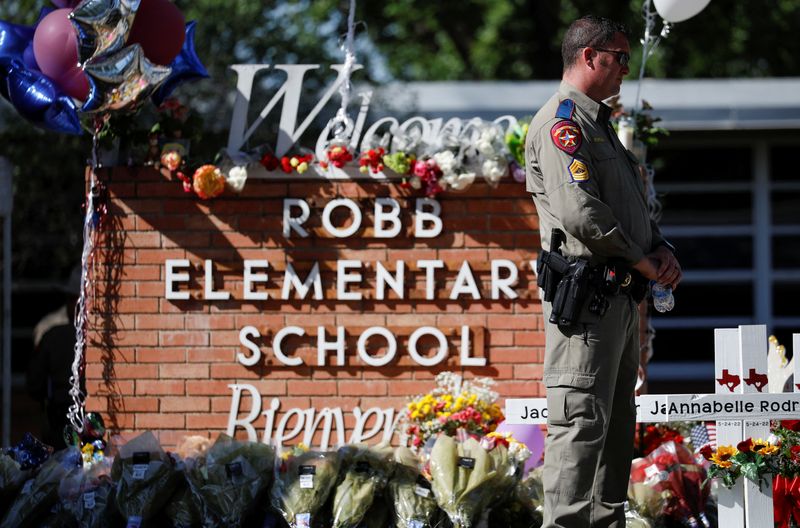(Reuters) - A shooting at a Texas elementary school that killed 19 children and two teachers has revived a push for new gun safety laws in the United States, which has more firearms than people and more permissive gun laws than many other high-income countries.
Over 200 mass shootings have been reported in the United States in 2022, according to the Gun Violence Archive, a nonprofit research group. More than 45,000 people died from gun-related injuries, including suicides, in the United States in 2020, according to the U.S. Centers for Disease Control and Prevention (CDC).
Stricter gun laws have been introduced in the U.S. Congress after past mass shootings, but they have been defeated by Republicans, independents and some moderate Democrats.
Here's how other nations have reacted after similar shootings.
CANADA
After the 1989 Ecole Polytechnique massacre, in which 14 women engineering students were killed in their Montreal classroom, new legislation required safety courses, background checks and increased penalties for some gun crimes.
In 2020, shortly after a gunman shot and killed 13 people in Portapique, Nova Scotia, Canada banned more than 1,500 models of "assault-style" firearms and components, and set limits on how destructive bullets could be.
Canada's rate of firearm homicides is 0.5 per 100,000 people, versus the United States' rate of 4.12, the University of Washington's Institute for Health Metrics and Evaluation (IHME) said in a 2021 analysis.
AUSTRALIA
After a gunman killed 35 people at a cafe and tourist site in 1996, Australia banned all semi-automatic rifles and all semi-automatic and pump-action shotguns. Thousands of unlicensed firearms were surrendered under a gun amnesty program, and licensed gun owners required to take a safety course.
The chances of being murdered by a gun in Australia plunged to 0.15 per 100,000 people in 2014 from 0.54 per 100,000 people in 1996, a decline of 72 percent, a Reuters analysis of Australian Bureau of Statistics figures showed.
UNITED KINGDOM A gunman killed 16 children and their teacher in Dunblane, Scotland, in 1996, prompting a public campaign that led to Britain adopting some of the strictest gun controls in the world. Within two years, new laws effectively banned civilians from owning handguns.
The United Kingdom's rate of gun homicides is 0.04 per 100,000 people, the IHME calculates.
NEW ZEALAND
After the Christchurch mosques shooting that killed 50 people in March 2019, New Zealand's prime minister banned the sale of assault weapons within days. Parliament later voted to bar the circulation and use of most semi-automatic firearms, parts that convert firearms into semi-automatic firearms, magazines over a certain capacity, and some shotguns.
Firearm-related murders were rare in New Zealand and remain so; the country had 12 in 2018 and 11 in 2021.
